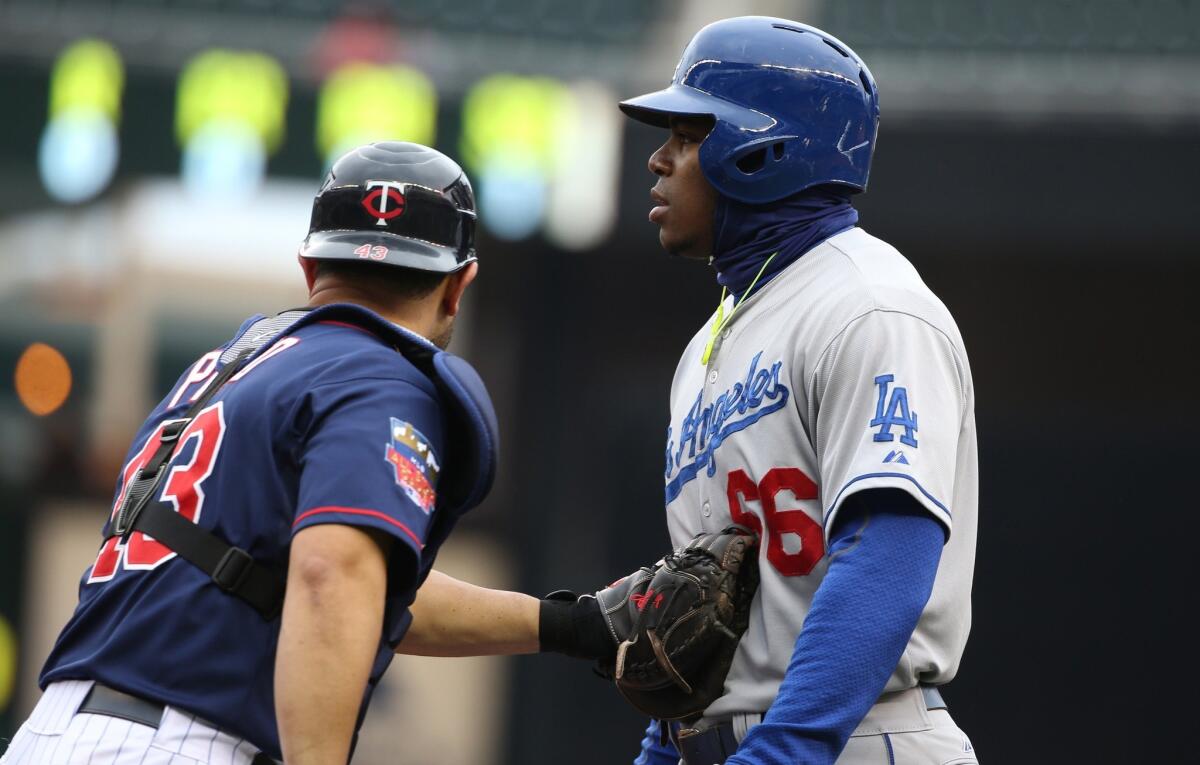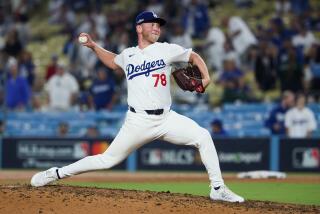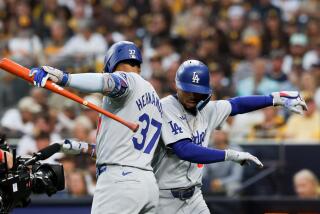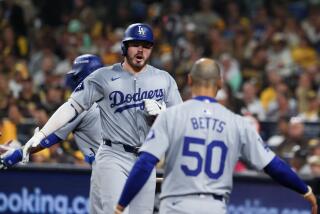Dodgers’ eight-hours-plus equals two wins over Twins

MINNEAPOLIS — About the only thing longer than a Dodgers game these days is two Dodgers games, which is what the team played Thursday on another frigid, rainy day in Minnesota.
And after two games, 21 innings, 773 pitches, 28 walks, five Dodgers errors and 8 hours 12 minutes of baseball, the visitors had won twice, taking the opener in a 9-4 laugher and winning the nightcap, 4-2, in 12 innings.
That it took a full day to get through all that is nothing new for the Dodgers, whose games are averaging 3 hours 16 minutes, longest of any team in the majors. Seven of those games, including Thursday’s nightcap, have gone to extra innings, also most in the majors.
FOR THE RECORD:
Dodgers-Twins: This article, which appeared in the May 2 Sports section, stated that the score of the second game of the Dodgers-Twins doubleheader was 4-2. The score was 4-3.
“If it’s right around three hours, it’s not a big deal,” first baseman Adrian Gonzalez said. “That’s the beauty of baseball. No time. And we want to keep it that way.
“We don’t want to put a clock and time on the game.”
But the commissioner’s office has done just that. Concerned about the pace of play, MLB has put a stopwatch on games in an effort to find a way to speed them up. And what they found is an average Dodgers game this season has had four more minutes of playing time than the Miami Heat needed for its entire playoff series with the Charlotte Bobcats.
In Thursday’s second game alone, the Dodgers were on the field 41 minutes longer than the U.S. soccer team was during the entire 2006 World Cup.
Of course the Dodgers were just standing around for most of that time, while the soccer players were actually playing soccer, making the comparison strained in Manager Don Mattingly’s opinion.
“It’s a lot simpler than you’re making it,” he said of the effect lengthy games have had on his players. “What’s that mean?”
Well for starters, it means the Dodgers are throwing a lot of pitches — in fact only two teams, the White Sox and Diamondbacks, have thrown more this season. And that may have something to do with the Dodgers’ big-league-leading 31 errors in 29 games.
“It’s tough to be able to focus that long on a nightly basis,” outfielder Andre Ethier said. “You definitely notice when you get the short ones. You’re in and out, you get things done.”
Ethier said games that drag on can also affect a team’s momentum on offense because players go longer between at-bats.
Mattingly isn’t so sure, saying the length of a game isn’t nearly as important as its rhythm.
“Each game is individual,” he said. “If the pitcher would work really, really slow, yeah that effects guys. If the game has a good tempo to it, it’s easier to play like that. No doubt about that.
“But I don’t think anybody is sitting here thinking, ‘Oh this is 3 hours and 12 minutes.’ You play each game individually.”
Second baseman Dee Gordon agrees — and he’s speaking from experience, having played a pair of five-hour games in winter ball.
“I played a few real long games,” Gordon, who played all 21 innings Thursday, with a smile. “I don’t really think about it, to be totally honest with you.”
Then there’s Drew Butera, who, as a catcher, is involved in every pitch when his team is on the field. He said long games can be taxing physically but he doesn’t really pay attention to the clock.
“As a player you’re into the game whether it’s an hour or whether it’s five hours,” said Butera, whose first homer since 2012 proved to be the game-winner in Thursday’s second game. “I don’t even know how long the game takes when I’m behind the plate.
“By the time the game’s over I’m like ‘What time is it?’ I have no idea.”
Twitter: @kbaxter11
More to Read
Are you a true-blue fan?
Get our Dodgers Dugout newsletter for insights, news and much more.
You may occasionally receive promotional content from the Los Angeles Times.











